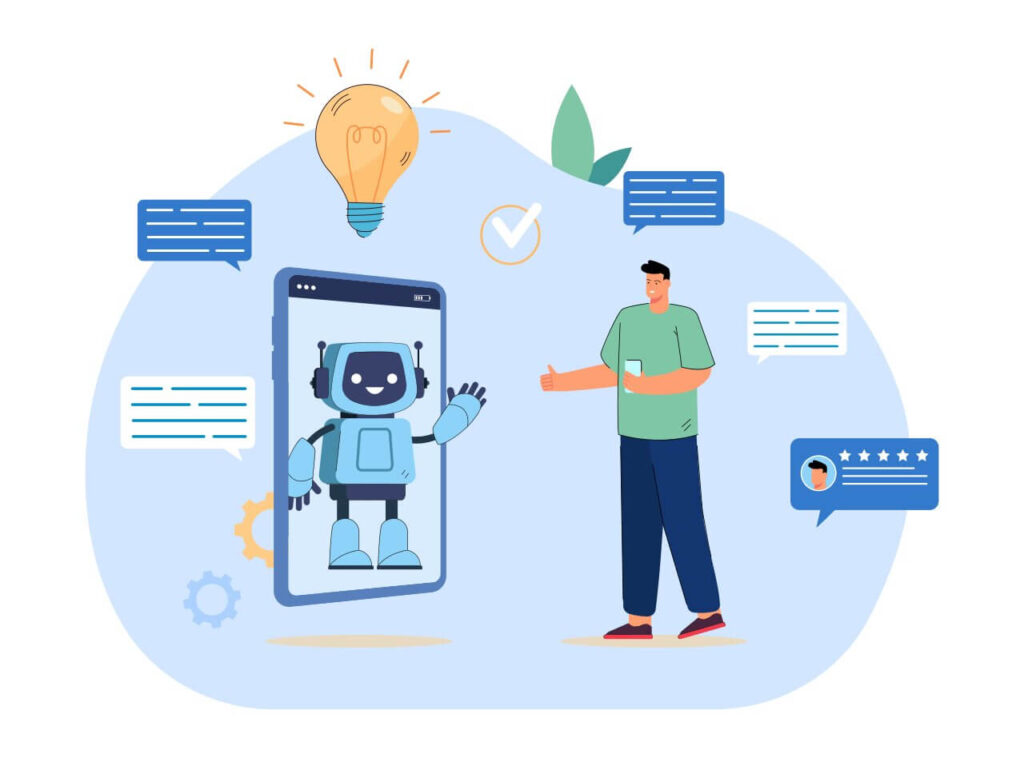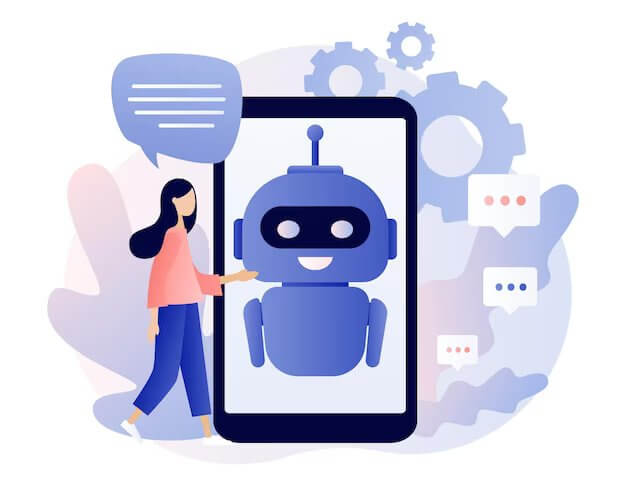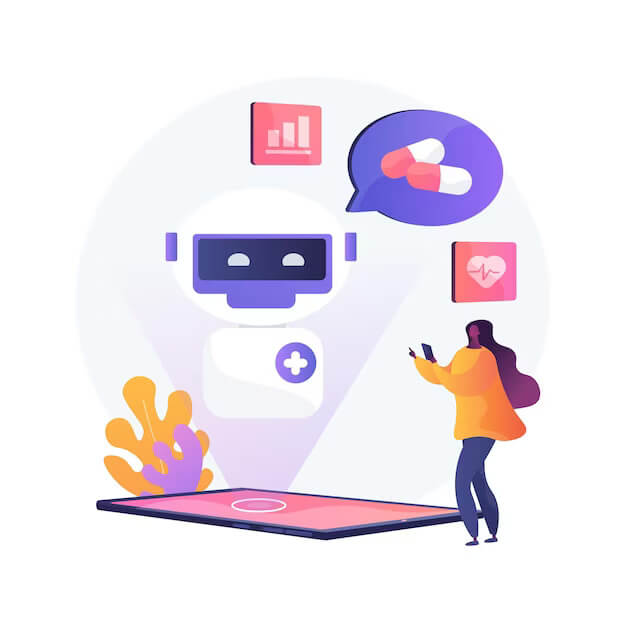AI and Soft Skills: A New Era of Employment Skills in Demand

In the fast-paced world of the 21st century, the landscape of employment is constantly evolving. Traditional job roles are giving way to automation, driven by the rapid advancement of artificial intelligence (AI). However, while AI is transforming industries and reshaping job markets, there’s an intriguing twist in the tale. The rise of AI is also fueling a growing demand for soft skills, creating a new era of employment where the ability to blend AI and soft skills becomes a winning formula. In this article, we’ll explore this dynamic shift in the job market, delve into the importance of AI and soft skills, and provide practical insights into how individuals can thrive in this new era of employment.
The AI Revolution: A Blessing or a Curse for Employment?
Artificial intelligence, often portrayed as a double-edged sword, has been making waves across industries. It’s been a blessing in terms of automating repetitive tasks, enhancing productivity, and unlocking new frontiers in healthcare, finance, and more. However, it has also raised concerns about job displacement. The burning question is, will AI replace human jobs altogether?
The answer is not as straightforward as one might think. While AI can perform certain tasks with incredible efficiency, it still lacks the nuanced, empathetic touch of a human being. This brings us to a fascinating intersection of AI and soft skills.
The Marriage of AI and Soft Skills
- Emotional Intelligence: The Human Touch
In an era where AI algorithms can analyze data faster than we can blink, what sets humans apart is emotional intelligence. Empathy, understanding, and the ability to connect with others on an emotional level are distinctly human traits. These soft skills are invaluable in roles that involve customer service, counseling, and even leadership. - Creativity: The Spark of Innovation
Can AI truly be creative? It can certainly generate content based on patterns and data, but true creativity—the ability to think outside the box and come up with innovative solutions—is an area where humans still reign supreme. This skill is coveted in fields such as marketing, design, and product development. - Communication: The Art of Persuasion
AI can generate text and even engage in rudimentary conversations, but effective communication goes beyond words. It involves non-verbal cues, active listening, and adapting to the needs of the audience. These soft skills are essential for sales, negotiation, and public speaking. - Adaptability: Thriving in Uncertainty
AI is great at handling routine tasks, but when faced with unexpected challenges or rapidly changing circumstances, it can falter. Human adaptability, the ability to learn and pivot quickly, is crucial in industries like healthcare, where new diseases emerge, or technology, where innovations disrupt the status quo. - Problem-Solving: Navigating Complexity
AI excels at solving well-defined problems, but the world is often messy and unpredictable. Humans shine when it comes to tackling complex, unstructured issues, whether it’s in research, consulting, or crisis management.
The Demand for AI and Soft Skills: What the Job Market Says

So, how do these AI and soft skills translate into the real job market? Are employers actively seeking candidates who possess this unique blend of abilities? Let’s take a closer look at some job trends and statistics.
| Industry | In-Demand Skills | Example Job Titles |
| Healthcare | Emotional intelligence, adaptability | Healthcare Manager, Nurse Practitioner, Patient Advocate |
| Marketing & Advertising | Creativity, communication | Digital Marketing Specialist, Content Strategist, Brand Manager |
| Customer Service | Emotional intelligence, communication | Customer Service Representative, Call Center Supervisor |
| Technology | Adaptability, problem-solving | Software Engineer, IT Consultant, Data Scientist |
| Education | Communication, adaptability | Teacher, Curriculum Developer, Education Consultant |
| Sales | Communication, empathy | Sales Representative, Sales Manager, Account Executive |
As we can see from the table above, the demand for AI and soft skills is pervasive across various industries. Employers recognize that while AI can handle routine tasks, it’s the human touch that truly drives success in roles that involve complex decision-making, creativity, and interaction with others.
How to Develop and Showcase AI and Soft Skills
Now that we understand the significance of AI and soft skills, the next question is, how can individuals develop and showcase these skills to stay competitive in the job market? Here are some actionable tips:
- Embrace Lifelong Learning: The world is changing at a breakneck pace, and staying relevant means being a perpetual learner. Invest in courses, workshops, and certifications that enhance both your technical and soft skills. Platforms like Coursera, edX, and LinkedIn Learning offer a wealth of resources.
- Seek Diverse Experiences: Don’t limit yourself to one domain. Seek opportunities that expose you to diverse challenges. Cross-functional roles or volunteering for projects outside your comfort zone can help you develop adaptability and problem-solving skills.
- Practice Empathy: Empathy is at the core of emotional intelligence. Practice active listening, put yourself in others’ shoes, and genuinely care about their concerns. Whether you’re in healthcare, customer service, or management, empathy will set you apart.
- Hone Your Communication: Effective communication is a prized skill. Join public speaking clubs like Toastmasters, practice writing, and seek feedback to improve your ability to convey ideas clearly and persuasively.
- Showcase Your Skills: In your resume and interviews, highlight instances where your soft skills made a difference. Share stories of how you creatively solved problems, resolved conflicts, or led teams through challenging situations. Concrete examples speak volumes.
The Future of Work: Balancing AI and Soft Skills

As AI continues to advance, the job market will evolve in tandem. The future belongs to those who can strike the right balance between technical expertise and soft skills. It’s not a battle of man versus machine but a collaboration that leverages the strengths of both.
So, as you navigate your career path, remember that AI and soft skills are not mutually exclusive. Instead, they complement each other, creating a synergy that can propel you to new heights in this ever-changing world of work. Are you ready to embrace this new era of employment, where the fusion of AI and soft skills is the key to success? It’s a challenge worth accepting, and the opportunities it offers are boundless.
Frequently Asked Questions (FAQ) – AI and Soft Skills: A New Era of Employment Skills in Demand
Here are some common questions about the intersection of AI and soft skills in the modern job market:
- What are AI and soft skills?
AI (Artificial Intelligence) refers to the development of computer systems that can perform tasks that typically require human intelligence, such as visual perception, speech recognition, decision-making, and language translation.
Soft skills, on the other hand, are interpersonal and personal attributes that enable individuals to interact effectively with others. They include skills like communication, empathy, adaptability, creativity, and problem-solving.
- How is AI impacting employment?
AI is automating many routine and repetitive tasks across various industries, leading to concerns about job displacement. However, it also creates new opportunities, particularly in roles that require a blend of technical expertise and soft skills.
- Why are soft skills important in the age of AI?
Soft skills are crucial because they complement AI’s capabilities. While AI can handle data analysis and repetitive tasks efficiently, soft skills like empathy, creativity, and communication are uniquely human and essential for roles involving complex decision-making and interaction with people.
- Which industries value AI and soft skills the most?
Several industries highly value the combination of AI and soft skills. These include healthcare, marketing and advertising, customer service, technology, education, and sales, among others.
- How can I develop my soft skills?
Developing soft skills requires practice and continuous improvement. You can enhance your soft skills through courses, workshops, real-world experiences, and seeking feedback. Joining clubs or groups related to your interests can also help you develop these skills.
- Can soft skills be measured or quantified?
While soft skills are not as easily quantifiable as technical skills, there are assessments, self-evaluations, and feedback mechanisms that can provide insights into your proficiency in areas like communication, empathy, and adaptability.
- How can I showcase my soft skills to potential employers?
To showcase your soft skills, provide concrete examples in your resume and during interviews. Share stories that demonstrate how your soft skills have contributed to positive outcomes in your previous roles. Highlight instances where your empathy, problem-solving, or creativity made a difference.
- Is it possible for AI to replicate soft skills?
While AI can simulate aspects of soft skills, such as generating empathetic-sounding responses or engaging in conversation, it cannot genuinely replicate the depth and authenticity of human soft skills. Human emotional intelligence and nuanced understanding remain unparalleled.
- What’s the future of work in the context of AI and soft skills?
The future of work involves a symbiotic relationship between humans and AI. Roles that require a combination of technical expertise and soft skills are likely to be in high demand. Success in this new era of employment will depend on individuals’ ability to balance AI’s capabilities with their unique soft skills.
- How can I stay competitive in the job market?
To stay competitive in the job market, focus on developing a well-rounded skill set that includes both technical expertise and soft skills. Continuously adapt to new technologies and trends, seek diverse experiences, and prioritize lifelong learning to remain valuable in the evolving job landscape.